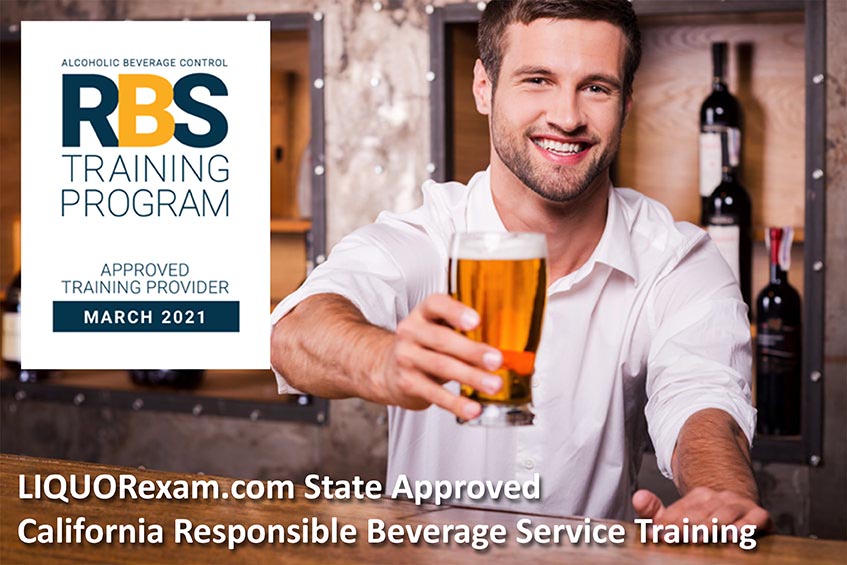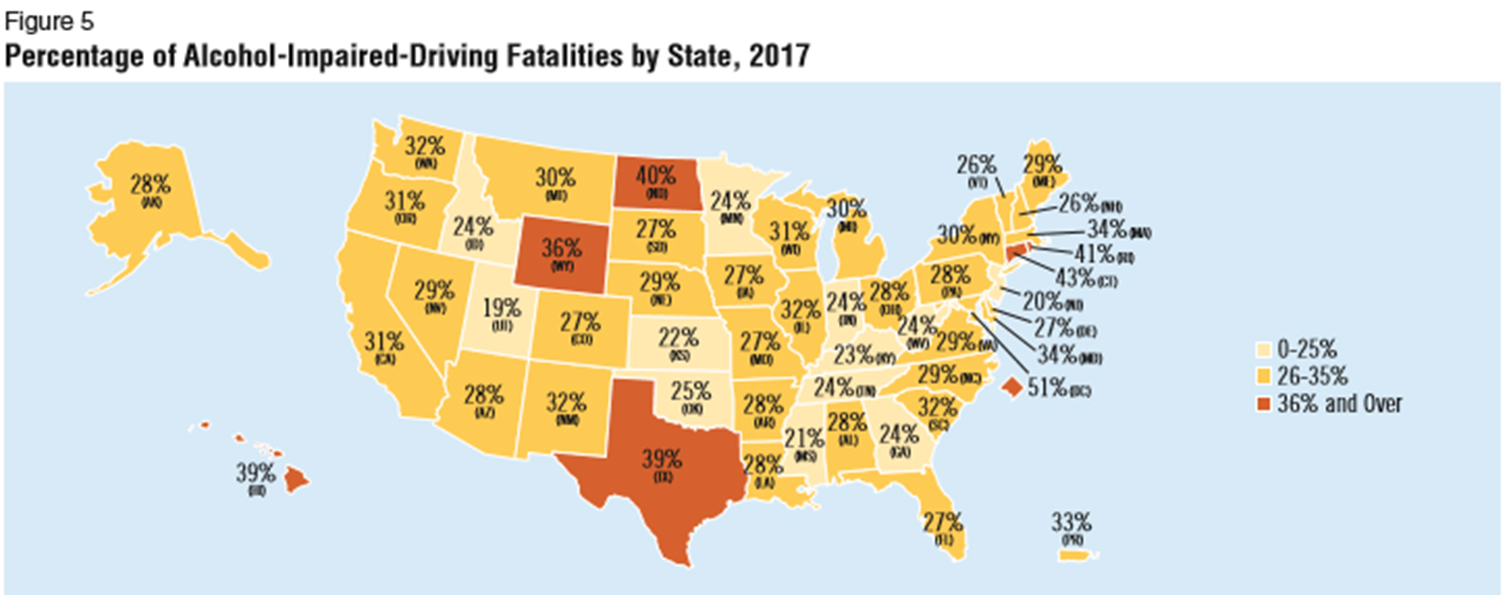Master Liable Alcohol Solution With Comprehensive Accreditation Programs
The mastery of responsible alcohol service is not merely a regulatory demand; it is an essential aspect that enhances the credibility and functional honesty of establishments within the friendliness market. Comprehensive accreditation programs supply vital understandings into local regulations, reliable intervention methods, and consumer interaction methods. By spending in these training initiatives, companies can foster a culture of responsibility amongst their team, mitigating threats and boosting consumer satisfaction. The path to effective execution and its long-lasting benefits may not be as simple as it appears. What obstacles exist in advance for those that seek to raise their service standards?

Relevance of Responsible Alcohol Solution
Accountable alcohol solution is crucial to promoting public health and wellness and security in facilities that offer alcohols. It encompasses a series of methods designed to avoid the overconsumption of alcohol, decrease the danger of alcohol-related harm, and make certain a safe setting for customers and personnel alike. By promoting responsible service criteria, establishments can mitigate prospective cases of drunkenness, which might cause crashes, violence, or other adverse end results.
In addition, liable alcohol service boosts the total consumer experience. Clients are more likely to return to establishments that prioritize their safety and security and wellness. This commitment cultivates a favorable track record, urging referral recommendations and repeat organization. Additionally, facilities that adhere to accountable service methods typically experience reduced insurance policy premiums and reduced legal liabilities.
Furthermore, carrying out liable alcohol service techniques straightens with more comprehensive public wellness campaigns focused on lowering drug abuse and promoting community wellness. This positive technique not just shields private customers yet also contributes to a healthier culture. Ultimately, responsible alcohol service is not simply a lawful commitment; it represents an honest commitment to the health of consumers and the area at large.
Key Elements of Certification Programs
Accreditation programs for liable alcohol solution generally include several essential elements made to equip team with the necessary skills and expertise to serve alcohol securely. First and leading, these programs frequently consist of thorough training on neighborhood and state alcohol laws, ensuring that participants understand their legal commitments and the repercussions of falling short to comply.
Another essential part is the identification of indicators of drunkenness - servsafe food handlers card. Team are trained to acknowledge behavioral hints indicating when a customer may be over-served, allowing them to interfere properly
Additionally, effective interaction strategies are emphasized, teaching staff how to engage with customers in a manner that promotes liable alcohol consumption. This includes training in conflict resolution strategies, enabling personnel to manage tight spots smoothly and expertly.
Moreover, programs frequently incorporate functional scenarios and role-playing exercises, offering participants with real-life examples to exercise their abilities. Ongoing education and resources are important for maintaining knowledge and skills over time, as regulations and ideal practices advance. With each other, these components produce a detailed structure that encourages personnel to promote a safer drinking atmosphere while lessening responsibility for establishments.
Benefits for Staff and Facilities
Team and facilities alike reap significant take advantage of joining accountable alcohol solution certification programs. For personnel, these programs enhance expertise and abilities associated with alcohol service, outfitting them to determine indicators of intoxication and implement efficient treatment techniques. This training not just fosters a feeling of self-confidence amongst workers however likewise promotes a society of safety and security and obligation in the office.
For facilities, buying certification programs can bring about decreased obligation and fewer occurrences associated with over-serving. By making certain that personnel are trained in responsible service methods, facilities can alleviate dangers connected with alcohol-related events, therefore securing their online browse around this web-site reputation and economic stability. Moreover, lots of jurisdictions offer motivations, such as lower insurance costs, for certified facilities.
Furthermore, applying licensed practices can enhance customer contentment and loyalty. Clients are more probable to go back to locations that prioritize their safety and security and health. Inevitably, a commitment to responsible alcohol service not only cultivates a positive setting however additionally boosts the overall functional efficiency of facilities, making it a smart investment for long-term success in the hospitality market.
Typical Difficulties in Alcohol Service
Making sure effective alcohol solution is not without its difficulties, also in facilities committed to liable methods. One substantial difficulty is the need for personnel to accurately examine clients' alcohol intake levels. servsafe food handlers card. This needs a keen understanding of just how different aspects, such as food intake, tolerance, and specific distinctions, affect intoxication
In addition, the stress to make best use of sales can clash with accountable service procedures. Staff members may encounter problems in refusing solution to intoxicated people, especially in social settings where peer pressure and expectations are widespread.
Another obstacle is staying upgraded with local legislations and laws regarding alcohol service. Compliance is important, yet regular changes in regulation can produce confusion and might result in unintentional infractions.
Training programs may not constantly cover the subtleties of real-world situations, leaving personnel ill-equipped to deal with complicated situations. Irregular interaction in between administration and staff members pertaining to assumptions for accountable solution can additionally aggravate these problems.
To browse these difficulties properly, facilities need to promote an atmosphere of support, emphasizing the importance of liable service while giving the required devices and training for team to prosper.
Actions to Obtain Qualification
To obtain Liable Alcohol Service Qualification, candidates normally begin by looking into the specific demands mandated by their neighborhood governing authorities. These needs may differ substantially relying on official statement the area, so it is crucial to acquaint oneself with the appropriate regulations and guidelines.

After selecting a program, candidates should complete the requisite training, which usually covers subjects such as identifying intoxication, comprehending lawful obligations, and carrying out approaches for responsible service. Individuals need to actively engage with the material, as this expertise is crucial for effective alcohol service.

Following training, prospects generally take an assessment to analyze their understanding of the material. click for source Successful conclusion of this assessment results in accreditation.
Verdict
In verdict, understanding responsible alcohol service with thorough accreditation programs is necessary for promoting security and improving client experiences within the hospitality market. By outfitting staff with the needed expertise and skills, facilities not just minimize dangers linked with overconsumption and legal obligations but likewise grow a culture of duty. This commitment to accountable solution eventually leads to increased client commitment and functional success, strengthening the significance of continuous training and adherence to alcohol service standards.